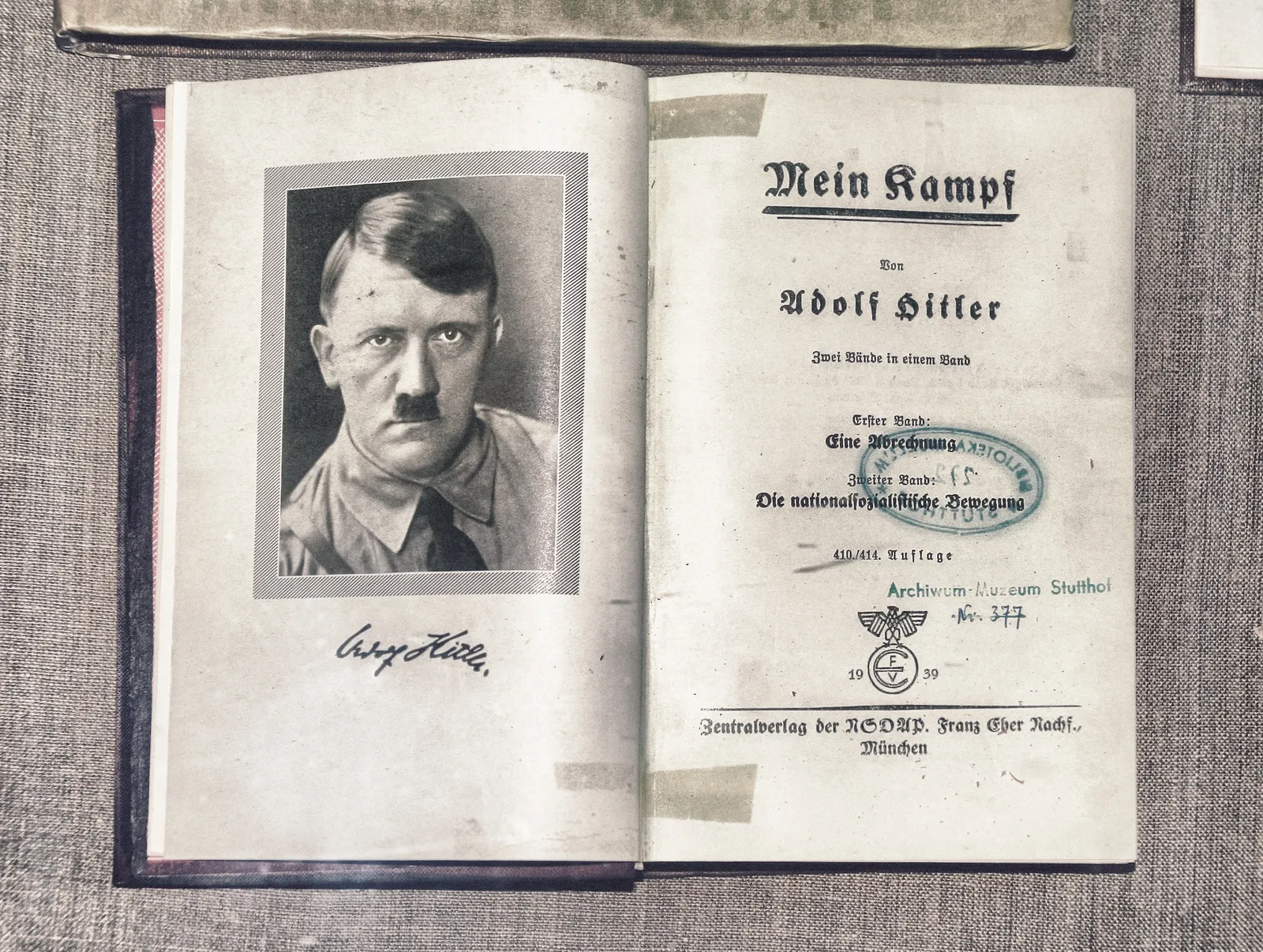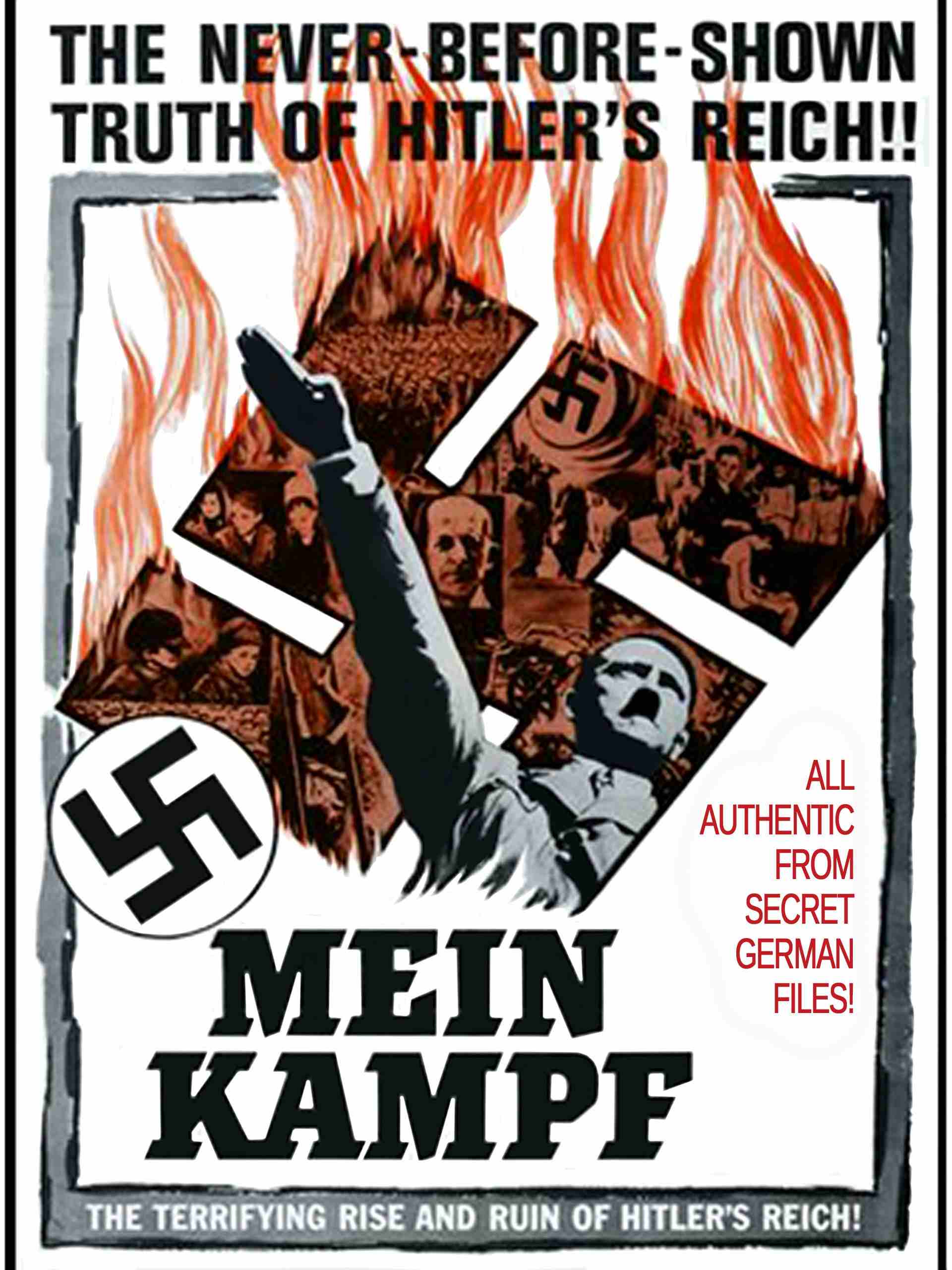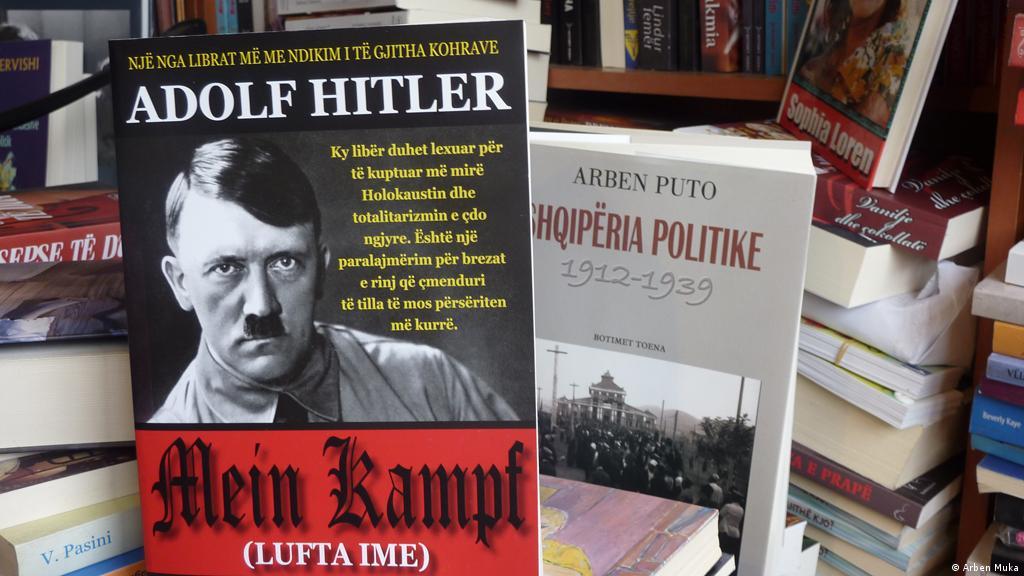Mein Kampf is Adolf Hitler’s autobiographical manifesto, published in 1925. The book details Hitler’s political beliefs and future plans for Germany, as well as the process by which he became antisemitic. The book Mein Kampf was released in two volumes, the first in 1925 and the second in 1926. Emil Maurice edited the book first, followed by Hitler’s subordinate, Rudolf Hess. Hitler began Mein Kampf while imprisoned during his failed coup in Munich in November 1923 and a high treason trial in February 1924, where he was sentenced to five years in prison.
Despite the fact that he had numerous visitors at first, he quickly devoted himself totally to the book. As he went on, he realized it would have to be a two-volume opus, with the first book due out in early 1925. At the time, the governor of Landsberg stated that “he hopes the book will run into many editions, thus enabling him to fulfill his financial obligations and to defray the expenses incurred at the time of his trial.”
Following Hitler’s ascension to power in 1933, the book became a best-seller in Germany. Let’s examine some further information about the book in order to learn more about it.
The Book’s Analysis
In Mein Kampf, Hitler included the central tenet of “the Jewish peril,” which postulates a Jewish plot to seize control of the world. The story explains how he developed antisemitism and a militaristic mindset over time, particularly in Vienna. He claims that before arriving in Vienna, he had never encountered a Jew and that, initially, he had a liberal and open outlook. He claims that when he first came across antisemitic media, he disregarded it as unworthy of serious thought. Later, he adopted the same antisemitic viewpoints, which were essential to his plan for rebuilding Germany’s national identity. Political theory has also been researched in relation to Mein Kampf.
For instance, Hitler declares his hatred of Communism and Judaism, which he considers to be the two greatest evils in the world. In the book, Hitler attributed the main causes of Germany’s problems to the Weimar Republic’s parliament, Jews, Social Democrats, and Marxists. This was despite the fact that he thought that Marxists, Social Democrats, and the parliament were all supporting Jewish interests.

History Of German Publications
During Hitler’s reign (1933–1945), Mein Kampf was published in three different editions. The initial edition, known as the Volksausgabe or People’s Edition, had the original cover on the dust jacket and was navy blue beneath, with a gold swastika eagle embossed on the cover. Marrying couples received the Hochzeitsausgabe, or Wedding Edition, free of charge. It came in a slipcase with the province’s seal inlaid in gold on a parchment-like cover. The Tornister-Ausgabe, often known as the Knapsack Edition, was published in 1940. This edition was a condensed but complete copy with a red cover that was made available by the post office for sending to loved ones serving in the military.

For these three editions, the two volumes were consolidated into one book. In 1939, a special version was released to commemorate Hitler’s 50th birthday. The Jubiläumsausgabe, or Anniversary Issue, was the name given to this publication. It had a gold sword on the cover and was bound in both dark blue and brilliant red boards. Volumes 1 and 2 were both included in this work. In comparison to the smaller and more prevalent Volksausgabe, it was regarded as the luxury version.
Also Read: Best Manga Romance Books That Have Become Iconic
The Book’s Current Availability
Hitler’s official abode at the time of his death was Munich, which resulted in the state of Bavaria acquiring ownership of the entirety of his estate, including all rights to Mein Kampf. Together with the federal government of Germany, the Bavarian government forbade the publication or duplication of the book within its borders. It also fought against printing and copying abroad, although with less success. Upon the passing of the calendar year 70 years following the author’s passing, the complete text became public domain on January 1, 2016, in accordance with German copyright law. In Germany, owning and purchasing a book is not illegal.

Trading of outdated copies is also legal unless done in a way that “promotes enmity or conflict”. The unmodified edition of Orwell’s 1984 is not covered by 86 StGB, which forbids the propagation of means of propaganda of unconstitutional organizations. Hitler’s Mein Kampf is available in most German libraries, heavily annotated and abridged. In 2008, Stephan Kramer, secretary-general of the Central Council of Jews in Germany, eased the ban on the book. Kramer volunteered his organization’s aid in editing and annotating the text. He suggested that the book should be made available online.
Also Read: Kelly Ripa Reportedly Scheduled 3 Dates For Upcoming Book Tour




